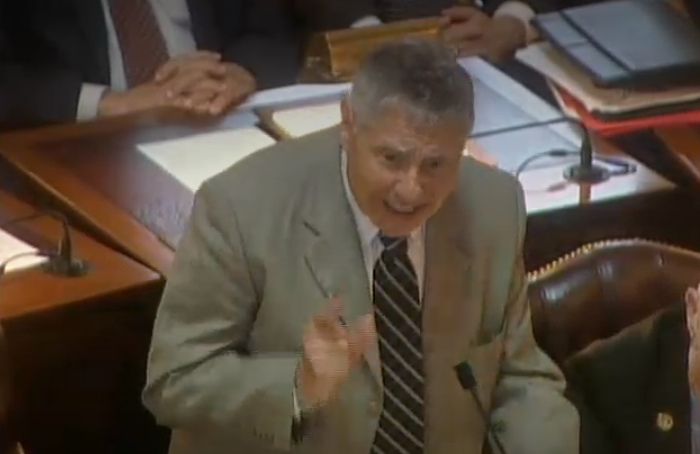Singer Bills to Battle Opioid Crisis Clears Senate

Singer Bills to Battle Opioid Crisis Clears Senate
A pair of legislative initiatives sponsored by Senator Robert Singer to combat New Jersey’s fatal overdose epidemic has passed the State Senate.
The first bill, “Charlie’s Law,” is named in memory of Charlie Van Tassel, a beloved son and brother who struggled and succumbed to his addiction at the age of 33. Charlie’s Law would require pharmacists to educate patients on how to safely discard unused, unwanted, or expired drugs and needles.
“All too often addiction begins at home, stemming from abused prescriptions or unused medication falling into the wrong hands,” said Singer (R – Monmouth and Ocean). “To someone like Charlie, who fought to stay sober, a bottle left unattended can be life-threatening. We can avoid addiction through proper disposal of unused drugs. Ensuring pharmacists educate patients on how to best dispose of unused medication will save countless lives.”
Under Charlie’s Law, A-5667/S-3933, the pharmacist issuing a prescription must provide written instruction to patients regarding proper drug disposal procedures, along with a warning of potential risks if the medication is not discarded safely.
In addition, the pharmacists must make available to the patient a way to dispose of unwanted or expired drugs. This could be through a pharmacy drop-box or kiosk, or a Drug Deactivation System product, which neutralizes 98 percent of medication and reduces the chance of drugs infiltrating a landfill or water supply.
The second bill, S-2929/ A-5059, would require the Commissioner of Health to establish local drug overdose fatality teams for each county in the state, helping local officials to better understand and prevent the circumstances that lead to fatal drug overdoses.
“We’ve come to understand that a one-size-fits-all approach to battling the epidemic of overdoses just doesn’t work,” added Singer. “The population in Ocean County, for example, is much different than that in Hudson or Sussex counties. We have a diverse variety of communities, law enforcement challenges, and social services that are available in different parts of the State. It makes sense to bring experts together at the county level to develop targeted local plans to help bring our opioid crisis under control.”
The legislation requires the Commissioner to develop a mandatory drug overdose death reporting process within the Department of Health. Health care practitioners, medical examiners, hospitals, emergency medical service providers, local health departments, law enforcement agencies, substance use disorder treatment programs, and relevant social services agencies would be required to confidentially report on individual cases of drug overdose death.
The Department would then forward the reported information to the local drug overdose fatality review team assigned to the county in which the drug overdose death occurred.
The annual drug overdose death toll remains above 3,000 in New Jersey.







